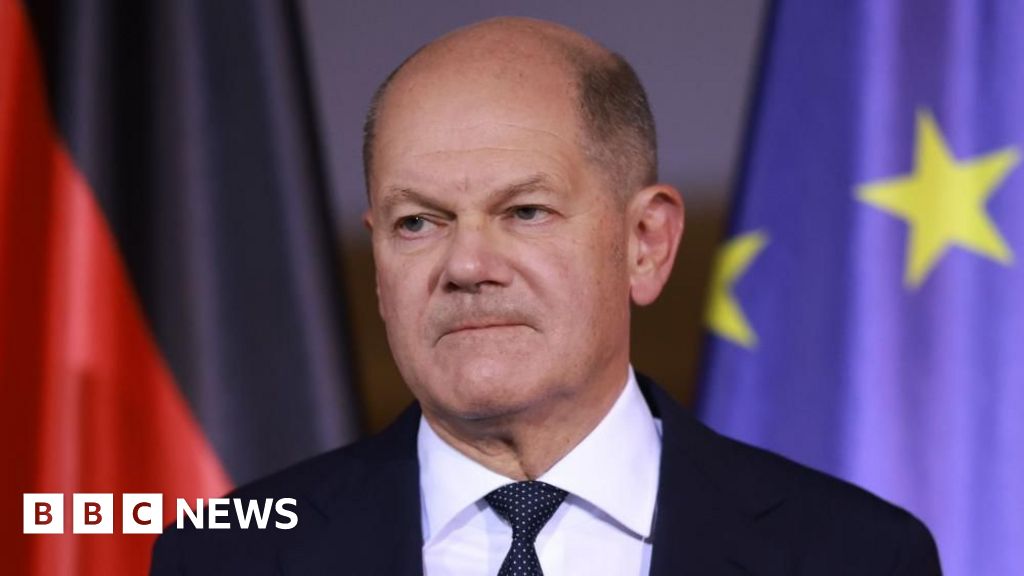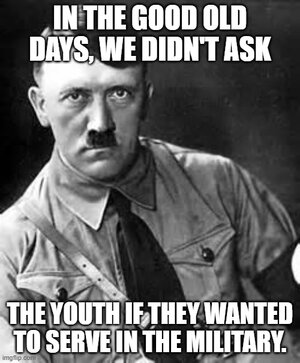- Joined
- Jul 8, 2021
- Messages
- 31,728
- Reaction score
- 66,828

Germany engulfed by political crisis as Scholz coalition falls apart
Europe’s most powerful economy is left rudderless, when EU leaders are nervous about a new Trump presidency.
www.bbc.co.uk
While the world has been watching Washington, Germany is quietly going into political meltdown.
This is a very German crisis involving coalition infighting and complicated constitutional questions.
But behind the complex political wrangling, Europe’s most powerful economy has been left rudderless, at a time when economic growth has stalled and EU leaders are nervous about an impending Trump presidency.
Chancellor Olaf Scholz fired Finance Minister Christian Lindner, the leader of one of the three coalition parties, on Wednesday night. Two of Lindner's three colleagues in cabinet promptly quit, effectively breaking apart the coalition government.
Scholz now leads a minority government until fresh elections, which means ordinary business can continue.
But because he no longer has a majority in parliament, the chancellor now needs opposition support to push through anything new, including crucially the 2025 budget, which is supposed to be agreed next week.
New measures to help Ukraine or boost defence spending would also be difficult to agree without help from opposition parties.
The Social Democrat chancellor has called on opposition conservative leader Friedrich Merz to support him to push through key policies, many of which the conservatives also agree with, such as more support for Ukraine.
They met on Thursday, with Scholz appealing for "constructive co-operation on issues that are crucial for our country".
Donald Trump's victory is likely to mean less funding for Ukraine, and as Germany is second to the US in financial support for Kyiv, the onus may fall on Berlin to increase its help.
Greens Foreign Minister Annalena Baerbock had just returned from a visit to Ukraine when she said the coalition collapse was "not a good day for Germany and not a good day for Europe".
Scholz wants to hold a parliamentary vote of confidence on 15 January, which would then lead to elections in March, six months before their scheduled date.
But it looks like Merz, who wants to be Germany's next chancellor as head of the Christian Democrats, is not playing ball.
He has demanded an immediate vote of confidence and snap elections in January, saying there is a range of decisions within the EU that need to be made, and that they need a functioning German government.
“We just cannot afford to have a government without a majority for several months, and then another few months of election campaigning, and then possibly another few months of coalition negotiations,” he said.
Other opposition parties have called for snap elections too.
Whenever they do happen, it's clear that campaigning season has already begun.
Germany's president has called for "reason and responsibility" to prevail, but this was a coalition collapse that was months in the making. And it was all about money.
This uncomfortable three-way coalition was pulled apart by two very different visions of how to stimulate Germany’s flagging economy.
Olaf Scholz’s centre-left Social Democrats and the Greens want to use debt to modernise infrastructure, shift to environmental energy and help industry, as well as Ukraine.
But Christian Lindner’s free-market liberal FDP is ideologically opposed to new borrowing, instead calling for lower taxes, cuts in social spending and pushing back environmental targets.
The crunch came in crisis talks this week, when it became clear that both sides were irreconcilable.
After the talks collapsed on Wednesday night, the chancellor delivered a scathing attack on his finance minister, calling Lindner egotistical and irresponsible for his unwillingness to compromise for the good of the country.
“He broke my trust too often,” said the chancellor, accusing Lindner of putting the short-term survival of his party over the welfare of the country.
Such public vitriol from a chancellor about a minister and coalition partner is unprecedented in German politics. If this was the televised public statement, just imagine what the mood was like behind closed doors.
Before the US election, Scholz allies argued that now was not the time for early elections and political instability in Germany.
But for the past year, coalition rows have regularly blown up over spending. And for voters, the bickering has become unbearable, meaning that poll numbers for all three parties have slumped.
Some argue that allowing a dysfunctional government to hobble on for another year would have led to more instability and deadlock.
There are also fears that a perceived inability of mainstream parties to govern plays into the hands of the far-right AfD and the new populist far-left BSW party.
Although the conservative Christian Democrats and their allies are well ahead in the polls, the AfD regularly comes second.
The prospect of a Trump presidency has begun to concentrate minds in Berlin. It could harm the German economy with tariffs and undermine national security by rolling back support for Ukraine.
Many have now come to the conclusion that Germany needs a united and effective government now more than ever.
---
Terrible news for Ukraine, as well as European security, but more so a very bad look for Germany.
Any Germans here able to give an outline of what might lie ahead?



